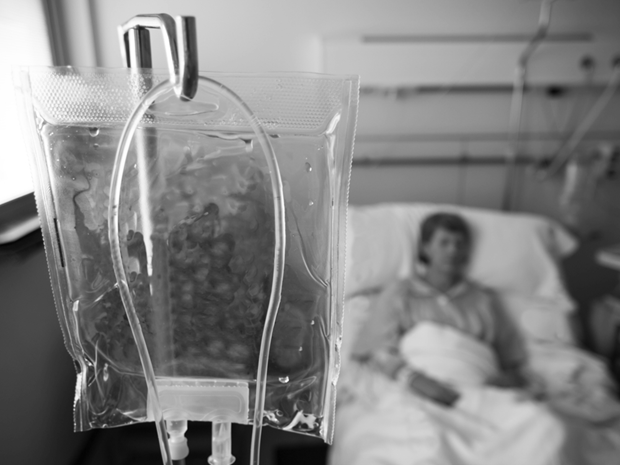A nurse is preparing to perform ocular irrigation for a client following a chemical splash to the eye.
Which of the following actions should the nurse plan to take first?
Place a strip of pH paper onto the cul-de-sac of the affected eye.
Administer proparacaine eye drops into the affected eye.
Install 0.9% sodium chloride solution into the affected eye.
Collect information about the irritant that caused the injury.
The Correct Answer is D
The first action the nurse should take is to collect information about the irritant that caused the injury.
This information is important because it can help determine the appropriate treatment and irrigation solution to use.
Choice A is incorrect because airborne precautions are used to prevent the spread of infectious diseases that are transmitted through the air, and are not necessary in this situation.
Choice B is incorrect because administering proparacaine eye drops into the affected eye is not the first action the nurse should take.
Proparacaine is a topical anesthetic that can be used to numb the eye before performing ocular irrigation, but it is not the first action the nurse should take.
Choice C is incorrect because installing 0.9% sodium chloride solution into the affected eye is not the first action the nurse should take; the nurse should first collect information about the irritant that caused the injury before performing ocular irrigation.
Nursing Test Bank
Naxlex Comprehensive Predictor Exams
Related Questions
Correct Answer is A
Explanation

Administering IV fluids can help maintain blood flow to the kidneys and prevent acute kidney failure.
Choice B is incorrect because inserting a urinary catheter does not prevent acute kidney failure.
Choice C is incorrect because an intravenous pyelogram is a diagnostic test and does not prevent acute kidney failure.
Choice D is incorrect because beta-blocker therapy is not used to prevent acute kidney failure.
Correct Answer is D
Explanation

A change in behavior such as agitation and restlessness in a client with a traumatic brain injury can be a sign of increased intracranial pressure.
The nurse should first assess the client’s blood pressure as an increase in blood pressure can be an indicator of increased intracranial pressure.
Motor responses are not the first assessment that should be performed.
Blood glucose is not the first assessment that should be performed.
Urinary output is not the first assessment that should be performed.
Whether you are a student looking to ace your exams or a practicing nurse seeking to enhance your expertise , our nursing education contents will empower you with the confidence and competence to make a difference in the lives of patients and become a respected leader in the healthcare field.
Visit Naxlex, invest in your future and unlock endless possibilities with our unparalleled nursing education contents today
Report Wrong Answer on the Current Question
Do you disagree with the answer? If yes, what is your expected answer? Explain.
Kindly be descriptive with the issue you are facing.
